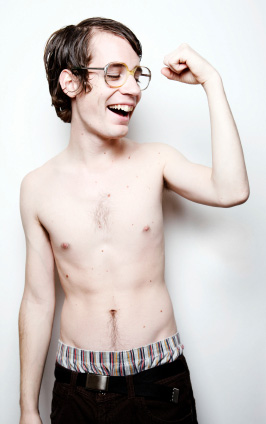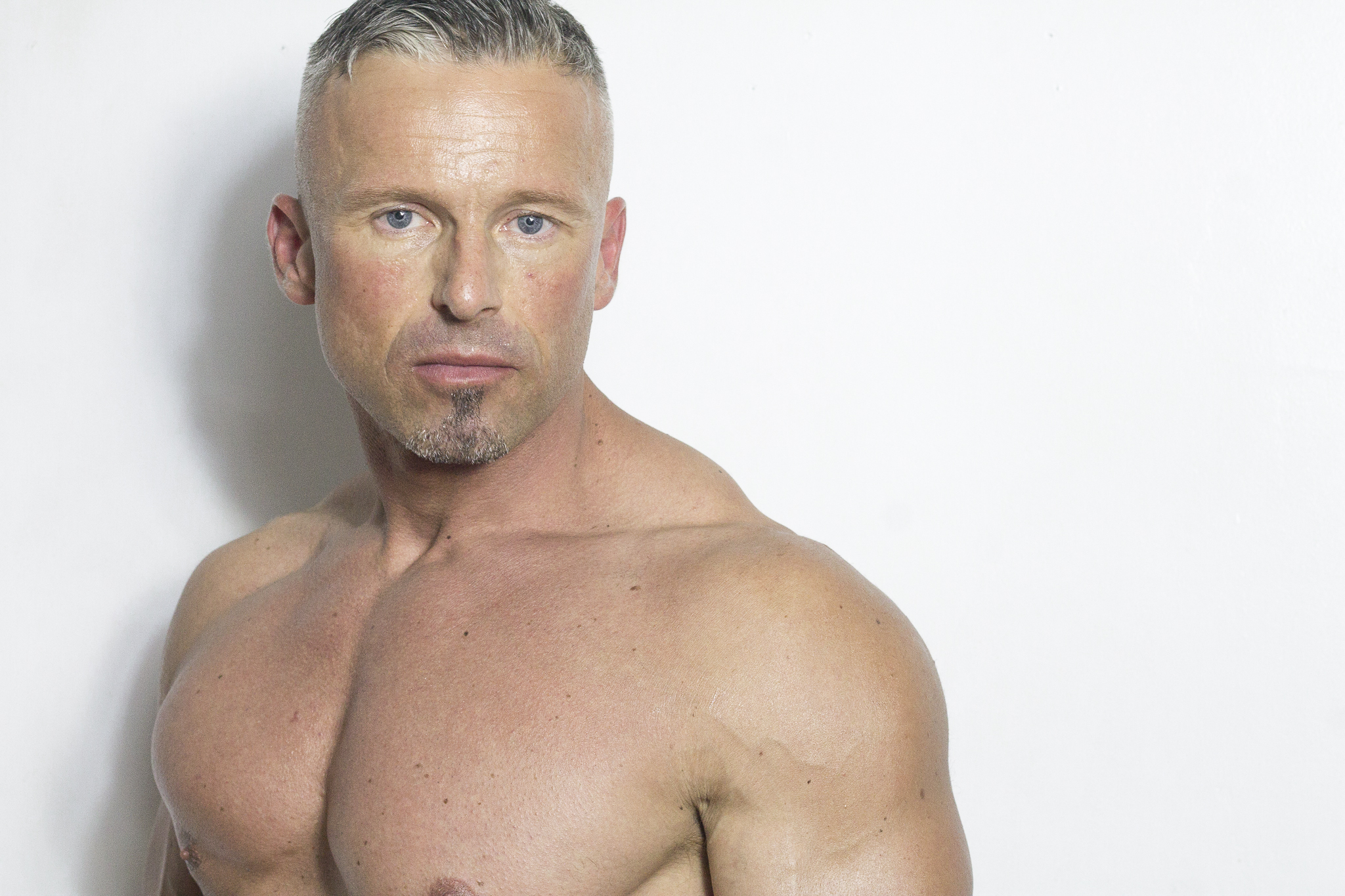I’m dying.
Okay, I’m not technically dying.
I’m not typing this from a hospital bed and no one’s told me to get my affairs in order, unless being reminded to empty the dishwasher qualifies.
Just physically, I’m degrading.
Eroding. Getting smaller and weaker. Getting fatter.
I’m becoming less the person I want to be — the person I’ve worked so hard to become — and more like what I don’t want…
Average. Normal. The soft, mushy middle of the societal bell curve.
It’s the unfortunate downside of moderation.
And it’s a beautiful thing.
Some back story.
It’s been over a month since I trained. In that time I haven’t so much as held a weight, unless bottles of beer (yep, back in Canada) count as resistance.
There was a good reason for the extended layoff. I had a move to coordinate and many loose ends to tie. Then say goodbye to a city and country and friends I adore, which meant drinks and food, even a few tears.
Next, a drive across the country, friends to visit, dinners, family, errands, more drinks, a second drive across another country (which certainly would’ve benefitted from a few drinks) then finally arriving in the next new home. And with it all the excitement and unmitigated chaos that brings.
What am I training today? Hey, let me find a gym first. And where did I pack my shorts?
There was another reason for the break. I was burnt out, having trained too hard on low calories for too long without a break.
Along with it was a cranky shoulder and a tight lower back. While that can be worked around, the mental fatigue was insurmountable. The gym was starting to feel like a chore, an obligation, and a job.
It should never be that way.
With apologies to more exacting measures like HRV, a subtle sign that you’ve been overtraining is when the mere thought of the day’s workout brings no joy.
The moment you grab your gym bag and mutter “I don’t feel like doing this and definitely don’t have the time,” it’s a sign. To stop.
It’s life telling you that you need a reprieve, an intervention. And likely a few hours on a bar stool with some good friends.
I was there, and then some.
I needed moderation.
Which brings me to today.
All settled (mostly), shoulder healed, refrigerator stocked, schedule set, and motivation at an all-time high.
Better start slow, right? Practice moderation?
No. Cause the time for moderation has passed.
Here’s the deal.
Moderation is wonderful because it makes a fitness lifestyle manageable, enjoyable, and sustainable for the rest of your life. This includes weathering all of life’s storms and obligations, be it children, moving, career change, or binge watching Breaking Bad.
Because moderation provides ebb and flow. Something I believe separates those that stay on track for life from the fitness supernovas and inevitable burnouts.
Also thanks to moderation, you can punctuate a nutritious diet with occasional indulgences, and stay well on track. Some “dirty” food or a few hundred calories a day of stupid snacking is fine when the rest of the diet is whole and nutritious.
Cause that’s how moderation works. Not only does it make life liveable, it makes life worth living.
However, there’s a catch.
Moderation must be earned through hard training and consistent good habits.
When I’m training 7-plus hours a week and otherwise eating like a machine, the last thing I care about is if that cup of Kozy Shack I inhaled was the “light” variety or the fully leaded version.
A night of drinking won’t advance you closer to your goals (at least not your training ones) but one evening out with the crew isn’t a big deal when the rest of the month sees you in bed by 11. And sober.
So You Can Out-train a Shitty Diet?
No, the best training in the world won’t do much if your diet doesn’t match your goals.
However, the idea that training on its own is 100% useless for body composition is a myth.
Actually, scratch that – easy or lazy or piss poor training is 100% useless for body composition. That’s why 99% of the people at the gym look the same, year after year.
But consistent, hard training is different.
It’s the quickest way to build muscle size and strength and improve anaerobic qualities. Because hard training hits like a metabolic sledgehammer. And in doing so, it also grants you the right to cut yourself a little bit of dietary slack.
In other words, hard training buys you moderation.
Think of your body like a bank account.
Keep making “deposits” in the form of consecutive days of intense exercise and smart eating, and you can also make regular “withdrawls” by way of vacations, treats, even shots of Don Julio off a stripper’s ass.
But also like a bank account, the frequency (and severity) of your withdrawls must never exceed your deposits.
Too many late nights combined with the typical bar star diet will slow progress to a crawl. Start skipping or mailing in training and soon you’re overdrawn.
To get back on track requires going 100% in the positive direction for at least a few weeks, even a few months, until you’re well “into the black” again and have earned the right to be a little less rigid.
In other words, be a strict, six-day a-week heavy lifting, meal eating machine. Until you don’t have to be.
I earned my moderation and it was what I needed. And I enjoyed it. But now that account has been exhausted and it’s time to build my nest egg back up.
That means it’s time to eat, sleep, and train at a much higher level. So I can earn the right to occasionally not have to.

Still Not Sold on Moderation?
Some people never take a break. They never indulge.
While I’m all about #AlwaysDoingYou, there’s a limit to my “to each their own” way of travelling.
When you start thinking that a more restrictive diet somehow makes you a better human being, I take issue. Cause you’re being an asshole.
When you start avoiding social gatherings or events that might involve exposure to “unclean” food then it’s you, my friend, who has the issue.
The trendy and socially acceptable title is Orthorexia.
My title is Annoying Dietary Tight Ass Syndrome, or ADTAS.
You know the type. They don’t squat cause “it’s awkward,” don’t press because they’re “too internally rotated,” and consider the single-leg dumbbell deadlifts to be an acceptable substitute for basic heavy pulls.
At the same time, they carefully consider the glycemic index of sweet potato versus Yukon gold, angst over the lack of fiber in white rice versus brown, and the very thought of eating a handful of Sour Patch Kids gives them psychosomatic reactive hypoglycemia.
Fortunately there’s a reliable cure for ADTAS — it’s called Hard Training.
Here’s how it works. Those stricken with ADTAS should be required to crank up their training to the point that for one hour every day they legitimately question whether they’ll make it through the session alive or at least without throwing up.
Repeat daily, six days a week. Continue until you realize how insignificant shit like the molecular weight of your overpriced peri-workout carbohydrates really is.
Cause moderation isn’t all that hard training buys.
It also, seemingly, buys wisdom.

